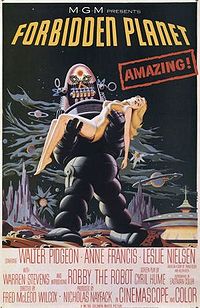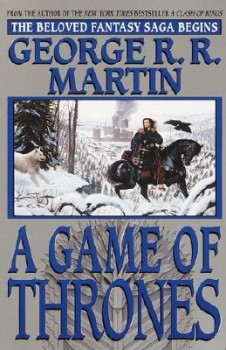Donald im Deutschen, or Unsung German Ph.D. Art Historian Heroines of the Comics Industry
 Who knew? The national weekly Micky Maus, featuring mainly Donald Duck, sells 250,000 copies in German, beating out Superman. Another 40,000 mostly adult readers snap up the monthly all-Donald specials. The fan organization D.O.N.A.L.D. (an acronym for “German Organization for Non-commercial Followers of Pure Donaldism”) holds a yearly convention, philosopher Max Horkheimer admitted to reading Duck comics at bedtime, and many Germans credit the Donald with introducing them to the literary classics. He remains the most popular children’s comic in Germany.
Who knew? The national weekly Micky Maus, featuring mainly Donald Duck, sells 250,000 copies in German, beating out Superman. Another 40,000 mostly adult readers snap up the monthly all-Donald specials. The fan organization D.O.N.A.L.D. (an acronym for “German Organization for Non-commercial Followers of Pure Donaldism”) holds a yearly convention, philosopher Max Horkheimer admitted to reading Duck comics at bedtime, and many Germans credit the Donald with introducing them to the literary classics. He remains the most popular children’s comic in Germany.
As Susan Bernofsky writes in the May 23 Wall Street Journal, it’s because Disney’s German licensee, Ehapa, retained artistic control over the translations. Donald was introduced during the years following World War II, when school officials were setting fire to American comics and some were proposing laws to ban comic books altogether. Ehapa hired a Dr. Erika Fuchs, who had never laid eyes on a comic before she was handed her first Donald Duck story. Her job was to breathe a little erudition into Disney. In her version, Donald quotes (and misquotes) Schiller and Goethe, he’s prone to philosophical musings, and even ordinary dialogue is cranked up: “I’d do anything to break this monotony!” becomes: “How dull, dismal and deathly sad! I’d do anything to make something happen.” A cat belts Wagner. And through it runs a vein of political critique, mostly, it seems, aimed at Nazism and intolerance.
Dr. Fuchs supplied the German for Donald Duck for a rather amazing 54 years, until her death in 2005.
 Given all the discussion of late about reboots, I wonder why no one has ever thought to revisit this classic. Forbidden Planet was my Star Wars when I was in fifth grade. In the New York metro area, Channel 9 had a feature called “Million Dollar Movie” that used to play a particular movie ever day throughout the week in the early evening. Forbidden Planet was a regular staple, and whenever it was in rotation, I was there in front of the TV (which, to give you an idea of how old I am, displayed only black and white).
Given all the discussion of late about reboots, I wonder why no one has ever thought to revisit this classic. Forbidden Planet was my Star Wars when I was in fifth grade. In the New York metro area, Channel 9 had a feature called “Million Dollar Movie” that used to play a particular movie ever day throughout the week in the early evening. Forbidden Planet was a regular staple, and whenever it was in rotation, I was there in front of the TV (which, to give you an idea of how old I am, displayed only black and white). The notion of the female warrior, while rooted somewhat in factual history (e.g., Joan of Arc), is largely an idealized notion of mythology, science fiction and fantasy. I suppose there is doctoral dissertation potential in figuring out why patriarchal societies that at best otherwise relegate women to supportive roles away from the battlefield (and at worst and more typically brutally victimize women as spoils of war) generate these tales of powerful females who can lop off a head or two as well as the next guy. Speaking as a guy whose adolescent sexual fantasies were heavily influenced by Emma Peel, the black leather-clad consort of John Steed in saving the free world from various madmen bent on world domination by delivering a quick blow to the groin, I’m guessing it’s some kind of inversion of castration anxiety.
The notion of the female warrior, while rooted somewhat in factual history (e.g., Joan of Arc), is largely an idealized notion of mythology, science fiction and fantasy. I suppose there is doctoral dissertation potential in figuring out why patriarchal societies that at best otherwise relegate women to supportive roles away from the battlefield (and at worst and more typically brutally victimize women as spoils of war) generate these tales of powerful females who can lop off a head or two as well as the next guy. Speaking as a guy whose adolescent sexual fantasies were heavily influenced by Emma Peel, the black leather-clad consort of John Steed in saving the free world from various madmen bent on world domination by delivering a quick blow to the groin, I’m guessing it’s some kind of inversion of castration anxiety. Recently I had occasion to visit the toy store — a rarity in a life spent avoiding children as much as possible — and was sort of blown away by how different it was than I remembered. The last time I was in a toy store was probably as a pre-teen buying Advanced Dungeons & Dragons books (yes, unbelievable as it seems, Fiend Folio and Unearthed Arcana used to share self space with Teddy Ruckspin and Cabbage Patch Kids at the local Toys ‘R Us) and, while I wasn’t surprised to see a complete lack of anything RPG in my visit, what did impress me is just how much fantasy and scifi oriented material I did find — you might even say the place was a juvenile spec fic warehouse, though with a side order of dinosaurs, pirates, and the occasional pony.
Recently I had occasion to visit the toy store — a rarity in a life spent avoiding children as much as possible — and was sort of blown away by how different it was than I remembered. The last time I was in a toy store was probably as a pre-teen buying Advanced Dungeons & Dragons books (yes, unbelievable as it seems, Fiend Folio and Unearthed Arcana used to share self space with Teddy Ruckspin and Cabbage Patch Kids at the local Toys ‘R Us) and, while I wasn’t surprised to see a complete lack of anything RPG in my visit, what did impress me is just how much fantasy and scifi oriented material I did find — you might even say the place was a juvenile spec fic warehouse, though with a side order of dinosaurs, pirates, and the occasional pony.

 Reading James’ post on Wednesday about the fan angst surrounding George R. R. Martin’s A Song of Ice and Fire series (and some of the unnecessarily blunt backlash), I started thinking about just how much I know about this hugely popular saga which I have actually never read. Indeed, having not even read it, I can say I am predisposed to already like it but, as Dave commented on James post, I’m also one of those people who tends not to buy into series with no end in sight.
Reading James’ post on Wednesday about the fan angst surrounding George R. R. Martin’s A Song of Ice and Fire series (and some of the unnecessarily blunt backlash), I started thinking about just how much I know about this hugely popular saga which I have actually never read. Indeed, having not even read it, I can say I am predisposed to already like it but, as Dave commented on James post, I’m also one of those people who tends not to buy into series with no end in sight.